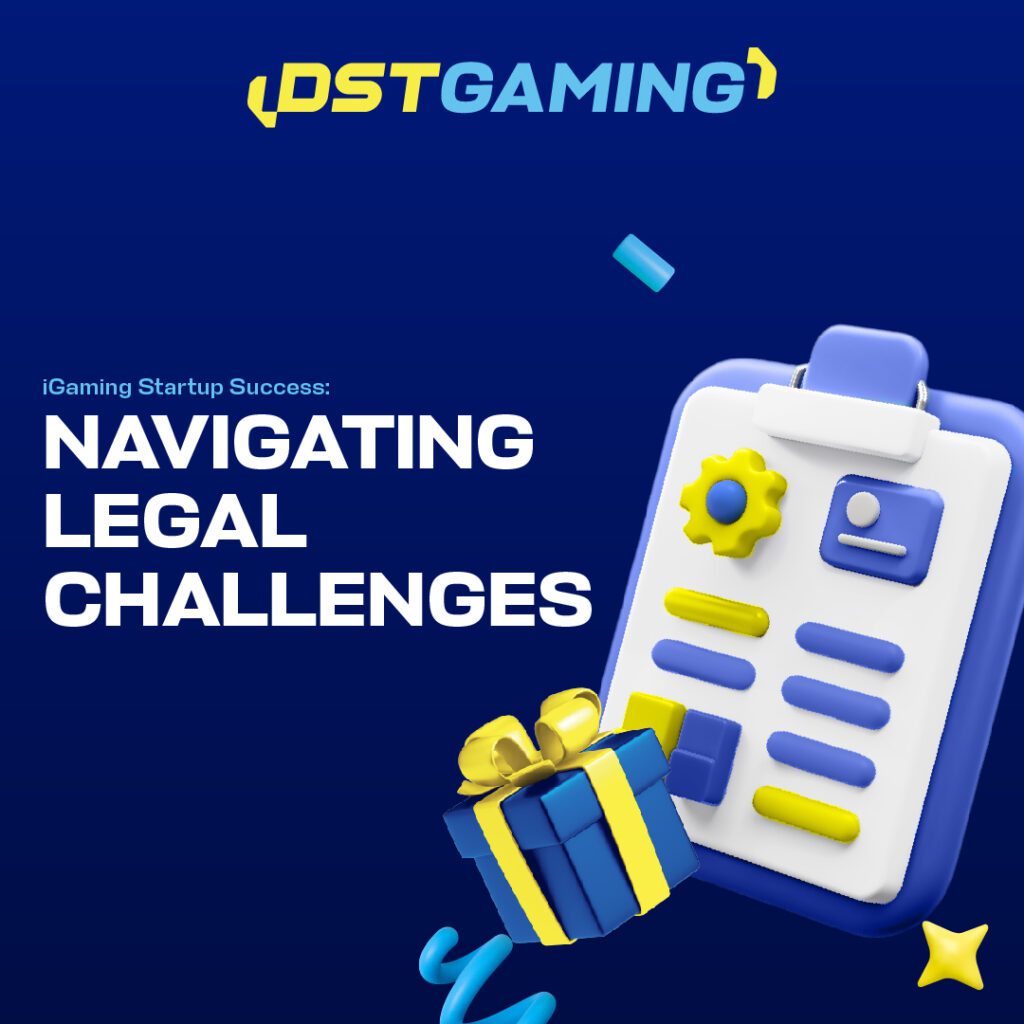iGaming Startup Success: Navigating Legal Challenges

iGaming Startup Success: Navigating Legal Challenges with DSTGAMING
The iGaming industry is booming, attracting ambitious entrepreneurs eager to launch their platforms. But true success in this space requires more than an engaging website or strong user acquisition strategy—it demands a solid understanding of the complex legal framework surrounding online gambling. That’s where DSTGAMING comes in, simplifying the legal landscape so you can build on a strong foundation.
Basics: Licensing Requirements
A valid gaming license is the non-negotiable starting point for any legitimate iGaming operation. Without it, you can’t operate legally—nor can you gain the trust of players or payment providers. Licenses are issued by regulatory authorities in various jurisdictions, each with its own rules, fees, and compliance standards.
Key licensing jurisdictions include Malta, Curacao, Gibraltar, and the United Kingdom, with regulating authorities like MGA and UKGC renowned for their stringent regulatory standards—ideal for establishing a reputable business. Curacao, on the other hand, is favored for its lower costs and quicker approval processes.
If you’re unsure which jurisdiction suits your business best, DSTGAMING’s in-depth article on licensing and jurisdictions offers detailed insights to guide your decision.
Structuring Your iGaming Business
The business structure you choose will impact your legal responsibilities, tax exposure, and scalability. Common options include:
-
Limited Liability Company (LLC): Ideal for small to mid-sized operators.
-
Public Limited Company (PLC): Suitable for businesses planning to go public or attract large-scale investment.
-
Offshore Entity: Common in jurisdictions like the Isle of Man or Gibraltar for favorable tax regimes.
Each option has its pros and cons depending on your goals. For custom guidance, DSTGAMING business services page offers tailored advice on setting up a compliant and scalable structure.
Regulatory Compliance and Legal Requirements
Once licensed and structured, compliance becomes your ongoing priority. It’s not just about satisfying regulators—compliance protects your reputation and ensures player trust.
Implement robust Know Your Customer (KYC) and Anti-Money Laundering (AML) processes to thwart fraud and ensure platform integrity. Staying updated with frameworks from bodies like the Financial Action Task Force (FATF) is vital to avoid legal repercussions.
Data Protection: Playing by Global Rules
iGaming platforms handle vast amounts of user data, making data protection a critical concern. If you serve European Union customers, GDPR compliance is mandatory. Non-compliance can incur hefty fines—up to €20 million or 4% of your annual revenue. To stay compliant:
- Obtain explicit user consent.
- Encrypt sensitive information.
- Conduct regular audits and risk assessments.
For US-based operations, CCPA compliance is also essential. DSTGAMING offers consulting services to navigate these complex data protection regulations.
Understanding iGaming Taxation
Taxation is a pivotal aspect of iGaming business planning. Your tax obligations largely depend on your business’s registration location and player demographics. Many operators opt for offshore incorporation to benefit from favorable tax rates. For instance, Malta’s corporate tax rate ranges from 5% to 35%, while Curacao offers much lower rates, making it a popular choice for startups.
However, tax savings shouldn’t be the only factor. Consider regulatory consistency and the reputational value of your chosen jurisdiction. DSTGAMING can help you find the right balance between tax optimization and long-term brand value.
Responsible Gaming: Your Ethical Edge
Responsible gaming is not just a checkbox—it’s essential for trust, retention, and long-term success. Most regulators require you to implement tools that support player well-being, such as:
-
Deposit and loss limits
-
Self-exclusion mechanisms
-
Clear communication of gambling risks
DSTGAMING’s white label platforms come equipped with built-in features to promote safe gambling, ensuring you meet regulatory expectations and foster player loyalty.
Marketing: Navigating Strict Guidelines
Marketing an iGaming brand is heavily regulated, especially in jurisdictions like the UK. Violating advertising laws can result in severe penalties, including license revocation.
Key considerations:
-
Follow Advertising Standards Authority (ASA) guidelines
-
Be transparent in affiliate and bonus terms
-
Avoid targeting vulnerable or underage audiences
DSTGAMING ensures your campaigns stay compliant while remaining competitive, helping you grow responsibly.
Conclusion: Launch Smarter with DSTGAMING
Building an iGaming platform is exciting—but navigating the legal maze is no small task. From choosing the right license to meeting compliance and tax requirements, every step matters.
With DSTGAMING by your side, you don’t have to face these challenges alone. Our expertise and full-service support ensure your business is not only compliant—but also built for sustainable success.
Ready to turn your iGaming vision into reality?
Let DSTGAMING help you do it right—legally, efficiently, and ethically.